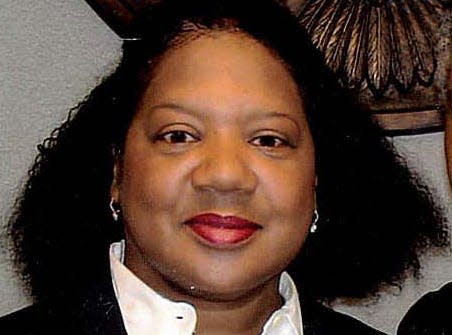ELAINE HARRIS SPEARMAN COMMENTARY: Carver High's teachers were pillars of the community

“It was the best of times, it was the worst of times.” Charles Dickens wrote these famous words in reference to the times of the French Revolution in 1775. This line is part of the opening paragraph in “A Tale of Two Cities.” The entire paragraph should be read to fully understand the meaning of the line.
This line kept running through my mind as I read the special section of The Gadsden Times entitled “Seven Days of 1961,” subtitled “These civil rights heroes stood up against racism and changed history.” In the face of the continuing upheaval in the education system, this section should be required reading for adults, as well as young people.
I can say without hesitation that there are parents, rearing young children, who know little to nothing about the Civil Rights Movement that resulted in their ability to provide a better life for their offspring. They know little to nothing of solid sacrifices made by some who may never have glory or statues, or praise for their hard work.
It is difficult under any circumstance to help a child understand what it took to bring even a reasonable amount of change to the U.S. A good educational foundation on the growth and differences in America helps a young person deal with challenges they will surely face as they continue their own educational and employment journeys.
It has been shocking to some young people as they find themselves face to face with horrible disappointment. Yes, you were qualified for that position. What happened? Recognition that the world does not revolve around you, and of the insular life your parents created, can truly be shocking to a young person without knowledge.
The word “unsung,” may be considered to be overused. I however think that it is so appropriate for the many educators in Gadsden who did not make the “Seven Days of 1961” section of the newspaper. Carver High School was the school for a long time for African American residents of a certain age in Gadsden. Its teachers were, and are, the pillars of the community.
Those teachers taught during tumultuous times. They knew your family or friends that knew you. They attended your church. You got away with no bad behavior. Parents were happy to be told about your transgressions.
A great many of our Carver teachers are gone. Some never will have the great recognition that others have had. But as our hearts and minds look homeward during the Thanksgiving to Christmas season, we are reminded of their greatness and the true spirit of hard work and respect — admiring the achievements of others and a desire to do good — that they instilled in us.
Education was chosen by many for the pure love of teaching. For many, the doors to other careers were closed. Education was always stressed as the way up and out. Becoming a mega-million-dollar sports figure was not an option. Neither was attendance at the University of Alabama, among other universities with fame and prestige.
Historically Black Colleges and Universities provided students, faculty members and graduates a strong sense of school pride that stems from the experience of attending schools where Black culture is celebrated, and the academic needs of Black students are given priority.
An article in the Wall Street Journal detailed HBCU donations and circumstances in Texas. The state has two HBCU’s that have “historically received less money from state government and philanthropists than flagship schools like Texas A&M, which was founded in the same year as the two HBCU’s.”
Across the country, sororities and other philanthropists have galvanized support for HBCU's to bring attention to the value of these institutions, and to increase the chances of a successful future with adequate funding.
Some of the optimism was “magnified by a $50 million donation” from Mackenzie Scott, the former wife of Jeff Bezos of Amazon notoriety. She has given billions to underfunded organizations since 2020.
Education remains the best option, in my opinion. A football player still needs to speak the English language and keep track of the millions that his football skills may net him.
A Louisiana board recently began the process of pardoning civil rights pioneer Homer Plessy, whose challenge of racial segregation laws was rebuffed by the 1896 Supreme Court decision that enshrined the doctrine of “separate but equal.” The decision would not be overruled until 1954 with the landmark Brown v. Board of Education.
Jan. 11, 2022, will mark the 125th anniversary of Plessy’s guilty plea for refusing to leave a whites only train car in violation of the Louisiana Separate Car Act of 1860. Hopefully, the state’s Democratic governor will sign the long overdue pardon.
Elaine Harris Spearman, Esq., a Gadsden native, is the retired legal advisor to the comptroller of the City of St. Louis. The opinions reflected are her own.
This article originally appeared on The Gadsden Times: Elaine Harris Spearman looks at education
